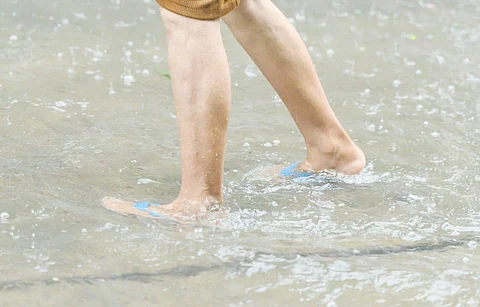
- NEWS
- the EDIT
- COMMENTARY
- BUSINESS
- LIFE
- SHOW
- ACTION
- GLOBAL GOALS
- SNAPS
- DYARYO TIRADA
- MORE

The Department of Health (DOH) logged over 500 cases of leptospirosis during the onslaught of Tropical Cyclones "Crising," "Dante," "Emong," and the southwest monsoon or habagat.
From 13 to 31 July, the DOH recorded a total of 569 cases of leptospirosis nationwide.
The Health department said it is on alert for an expected increase in leptospirosis due to flooding brought by continuous rains.
The DOH also warned the public to avoid wading in floodwaters because of the risk of leptospirosis.
If unavoidable, the agency advised the public to wash exposed skin with soap and water.
“Monitor yourself for symptoms [and] even if you have no symptoms, consult immediately if you have been in a flood,” the DOH said.
The department also reminded the public to only take anti-leptospirosis medications, such as Doxycycline, as prescribed by a doctor.
Leptospirosis is a serious infection caused by exposure to floodwaters contaminated with rat or animal urine.
Symptoms include fever, headache, chills, and muscle aches, especially in the calves and back. Some may also experience red eyes, vomiting, nausea, abdominal pain, diarrhea, and rash.
In more severe cases, leptospirosis can lead to jaundice or yellowing of the skin and eyes, kidney failure, meningitis, and lung complications.
